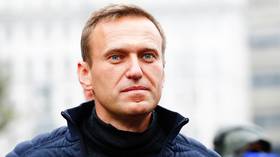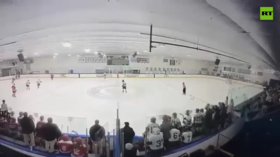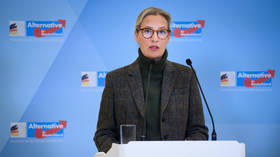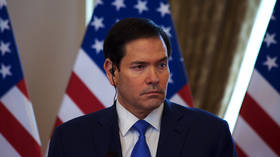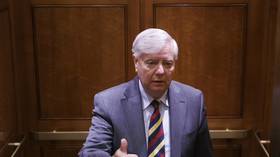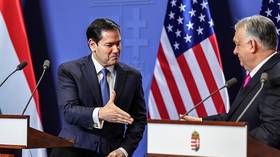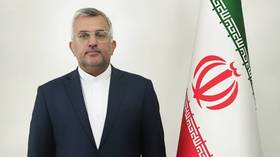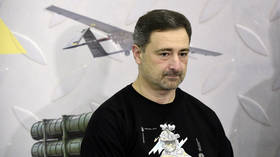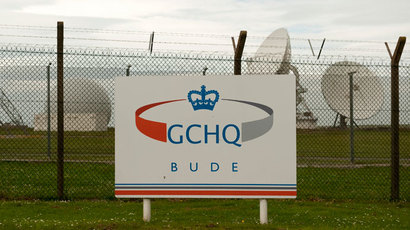Snowden: NSA pressured EU into creating ‘European bazaar’ of spy networks
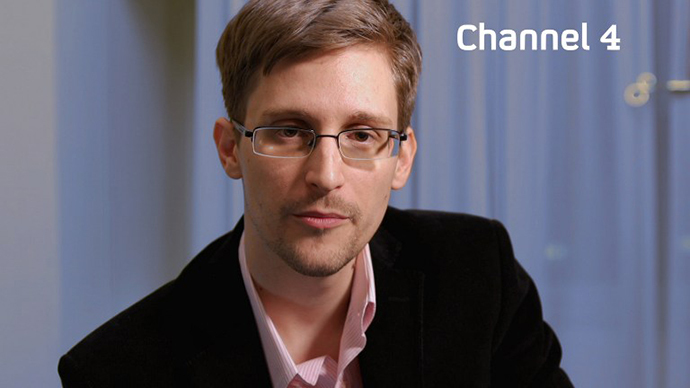
National Security Agency leaker Edward Snowden answered questions before the European Parliament on Friday, saying that the United States spy agency pressures its allies to take steps towards further enabling widespread and indiscriminate surveillance.
“One of the foremost activities of the NSA's FAD, or Foreign Affairs Division, is to pressure or incentivize EU member states to change their laws to enable mass surveillance,” Snowden said in a testimony delivered remotely from Russia. “Lawyers from the NSA, as well as the UK's GCHQ, work very hard to search for loopholes in laws and constitutional protections that they can use to justify indiscriminate, dragnet surveillance operations that were at best unwittingly authorized by lawmakers.”
“These efforts to interpret new powers out of vague laws is an intentional strategy to avoid public opposition and lawmakers’ insistence that legal limits be respected,” Snowden added.
The NSA lobbied heavily for leaders in Sweden, the Netherlands, New Zealand, and Germany to authorize mass surveillance operations, including programs in which intelligence is gathered and then shared across borders with allied nation-states abroad, the former intelligence contractor said.
“Each of these countries received instruction from the NSA, sometimes under the guise of the US Department of Defense and other bodies, on how to degrade the legal protections of their countries' communications,” he said, including one instance in Germany where officials there were allegedly pressured by the US to modify the country's G-10 law “to appease the NSA” while at the same time “it eroded the rights of German citizens under their constitution.”
Pressuring those countries to increase their surveillance capabilities and adopt new technology created a “European bazaar” that enabled EU member states to essentially funnel intelligence to spy firms around the globe, Snowden said.
According to Snowden, “an EU member state like Denmark may give the NSA access to a tapping center on the [unenforceable] condition that NSA doesn't search it for Danes, and Germany may give the NSA access to another on the condition that it doesn't search for Germans. Yet the two tapping sites may be two points on the same cable, so the NSA simply captures the communications of the German citizens as they transit Denmark, and the Danish citizens as they transit Germany, all the while considering it entirely in accordance with their agreements. Ultimately, each EU national government's spy services are independently hawking domestic accesses to the NSA, GCHQ, FRA, and the like without having any awareness of how their individual contribution is enabling the greater patchwork of mass surveillance against ordinary citizens as a whole.”
“By the time this general process has occurred, it is very difficult for the citizens of a country to protect the privacy of their communications, and it is very easy for the intelligence services of that country to make those communications available to the NSA -- even without having explicitly shared them,” he said.
“The Parliament should ask the NSA and GCHQ to deny that they monitor the communications of EU citizens, and in the absence of an informative response, I would suggest that the current state of affairs is the inevitable result of subordinating the rights of the voting public to the prerogatives of State Security Bureaus,” Snowden added.
Friday’s remarks were published by a website administered by supporters of Snowden, who has been in Russia since June 2013. American authorities revoked his passport last year after he admitted to being the source responsible for a trove of leaked, top-secret NSA documents that have disclosed evidence of several previously unknown US surveillance programs, leaving him confined to the Moscow region.
Snowden cautioned the EU committee that there are “many other undisclosed programs” that will likely impact the rights of citizens there once they are made public, but said he “will leave the public interest determinations as to which of these may be safely disclosed to responsible journalists in coordination with government stakeholders.”
In his statement, Snowden also denounced allegations that he has a relationship with the government of Russia.
“I would also add, for the record, that the United States government has repeatedly acknowledged that there is no evidence at all of any relationship between myself and the Russian intelligence service,” Snowden said.
“For the record, I also repeat my willingness to provide testimony to the United States Congress, should they decide to consider the issue of unconstitutional mass surveillance,” he said.


